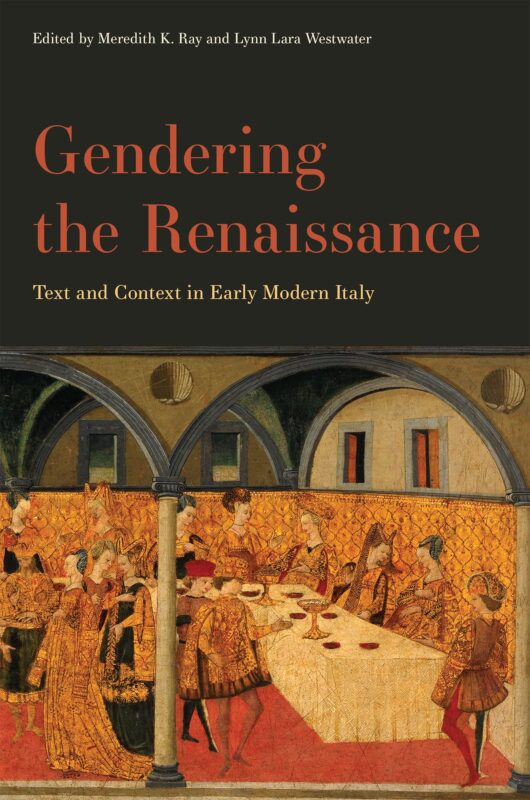
Gendering the Renaissance: Text and Context in Early Modern Italy
University of Delaware Press
Abbiamo da poco finito di piangere sulla monaca di Monza. Dopo la pubblicazione di questo libro smetteremo di piangere anche su Arcangela Tarabotti.
After their Italian edition of Taraboti’s Lettere, Meredith Ray and Lynn Westwater have now produce the definitive English translation of this remarkable text: clear, accurate and lively — a delight to read. Their introduction sets the historical and cultural context, while meticulous notes fully explain each letter. Altogether, compelling reading that brings the extraordinary story told by Tarabotti’s Letters to an English-speaking audience for the first time.
Meredith Ray and Lynn Westwater have done an excellent job reworking Tarabotti’s labyrinthine, often page-long sentences, skillfully breaking them into readable, truly eloquent English equivalents. The notes supporting the translation are very thoroughly researched, extensive and insightful. The introduction is an indispensable guide to Tarabotti’s account of convent life.
Readers will find meticulous historical contextualization in the editors’ analytical introduction, and in the individual summaries that begin each section of texts. Ippolita Maria Sforza adds a different type of protagonist to the growing roster of “other voices,” showing us an Italian noblewoman maneuvering with confidence and dexterity not only in the literary domain but also in that of formal politics.
As we expand the geographical span of early modernity, this monograph reminds us that we still have plenty to uncover when it comes to diverse voices in what seem to be the most studied areas. Sarra Copia Sulam’s life, salon, and works are one of these ‘blind spots,’ and Westwater’s book fills a lacuna that many did not even know existed.
The first comprehensive English-language biography of Sarra Copia Sulam, this book effectively argues that Copia Sulam merits our attention for her exceptional life as well as for her literary achievements. Westwater provides a compelling and well-researched narrative, artfully placing Copia Sulam’s writings within the context of her life as well as within the contemporary debates surrounding theology and gender. Readers will be fascinated by the biography of an extraordinary person as well as by the descriptions of Jewish culture in Italy at the beginning of the seventeenth century.

